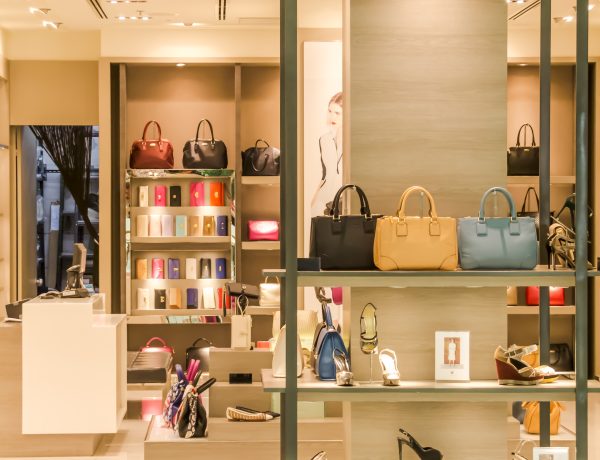We’ve all been there, perusing the metaphorical windows of ASOS, H&M or whatever your favorite fashion brand currently is without really knowing how to protect your privacy when shopping online. You click on a bunch of products without actually making a purchase and then, 20 minutes later you’re on Facebook, chatting to an old friend or innocently looking through your ex’s new girlfriend’s pictures of her hamster. Suddenly, there is the t-shirt in an advertisement that you recognized from earlier. It then becomes an uneasy, eery moment where you remember that the internet is learning more and more about you, tailoring products to what it believes you desire, making you feel like you need to consume more and more, usually fast fashion products. Whether just browsing or actually shopping, you should know how to protect your privacy when shopping online.
It’s bad enough to feel like someone is watching our every move, collecting data on us, monitoring everything in order to persuade us to consume more products, more content and spend more time online only to repeat the cycle again and again.
Before we delve too deep into a pit of fear of the online world, it’s important to say that, while to some extent you are always leaving an internet trail, there are ways of keeping your privacy intact and limit the data that sites have access to. Most likely, some ONE isn’t spying on your personal life, but bots and data mining are real occurrences, so it is smart to take some easy precautions to protect your privacy when shopping online and limit what others can hack and survey from your personal internet use.
Don’t save cards online
When finishing a purchase in the checkout, the site usually gives you the option to save your card details for next time. Though it might save you a few minutes typing in your card details, and you may trust the site, those card details are the key to that whole bank account. If someone found out your password for that site, they could access a whole lot more than just your saved items.
Vary your passwords
If you have similar passwords for multiple important accounts, consider changing or varying them so each password is unique. Having unique passwords adds a far stronger level of security, which people frequently underestimate in favor of a memorable familiar password.
Use echecks
You can eliminate use of card details completely by opting for echecks. They are a safe and secure way to pay money online, because you never have to give your card details to a vendor. Plus, when you use an echeck on certain sites, you are given perks, like to boost your first deposit on echeck casinos.
Check for the padlock when making a purchase
Photo by skylarvision on Pixabay
This is the easiest thing to do but also the simplest to miss. There is a small padlock image which appears on the left of the URL on a browsing window. It should ALWAYS appear when you are on a checkout or payment page, and should also appear when you are on a site private to you, for example, your email or cloud account. If it doesn’t appear when you are making a payment, then your details are highly at risk, so make sure to check. You can also consider using dedicated proxies. They can help protect your privacy by masking your IP address and location when shopping online. You can also consider using dedicated proxies. They can help protect your privacy by masking your IP address and location when shopping online.
Use incognito browsing
A sure-fire way for your browsing to not turn into ads is to use incognito. It won’t track your browsing history and it’s great for things like booking flights – because the cookies are not saved, it means the genuine price is shown, not the higher price sites put when they can see you’ve been interested before.
It is scary sometimes to think of how much data companies could have about us, but there are measures we can all take to remain safe and secure online. We hope these simple tips will help protect your privacy when shopping online.
Read more ecommerce articles at Cliché Magazine
Images provided by Pixabay CC License





